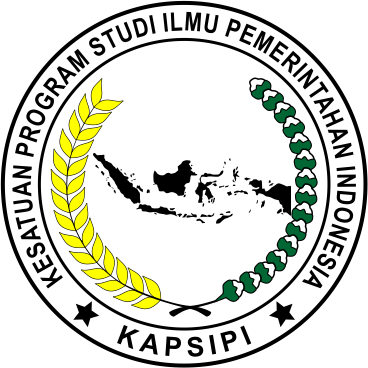Implementation of SIGA Application as Gender Data Access to Realizing Agile and Digital Governance
DOI:
https://doi.org/10.18196/agimjournal.v1i1.2Keywords:
SIGA Application, Agile Governance, GenderAbstract
The Special Region of Yogyakarta (DIY) in order to realize an inclusive and women- friendly province created a gender application based on the Gender and Child Information System (SIGA). The purpose of the SIGA application is to record gender data quickly, precisely and accurately in DIY. In the concept of Agile Governance, speed and accuracy are needed to produce accurate gender data presentation to the community. Based on this, this research aims to analyze the SIGA application as an access to data search in the Special Region of Yogyakarta. The approach in this research uses a qualitative method with a case study approach. The main data was obtained from secondary data through online media and scientific articles relevant to the topic studied. Data analysis was conducted interactively with the help of NVIVO 12 plus software through the Crosstab Analysis feature. The theoretical foundation in this research uses three principles from Agile Governance theory, including: First, Based on Quick Wins; Second, Systematic and Adaptive Approach, and Simple Design and Continous Refinement. So that the results of the study can show the speed and accuracy of the SIGA application, data updates, ease of access, and features that can be accessed easily for the public in finding gender data in DIY.
Keywords: : SIGA Application; Agile Governance; Gender
References
Apriliah, W., Tabrani, M., & Ermawati, E. (2022). Workshop Tata Kelola Surat Digital dalam Peningkatan Pelayanan Publik Kelurahan Karangpawitan. PRAWARA Jurnal ABDIMAS, 1(2), 52–57.
Asdie, A. (2020). Pengembangan Sistem Data Gender dan Anak Untuk mendukung Percepatan Pengarusutamaan Gender.
Azizah, N. (2021). Aliran Feminis dan Teori Kesetaraan Gender dalam Hukum. SPECTRUM: Journal of Gender and Children Studies, 1(1), 1–10. https://doi.org/10.30984/spectrum.v1i1.163
Dwisnu, E., Hartono, R., Rahayu, N., Tinggi, S., Administrasi, I., Kelapa, K. P., Administrasi, T. K., & Klapa, P. (2023). Diseminasi Tata Kelola Administrasi Digital Di. 67–72.
Farid, M. (2015). Implementasi Electronic Government Melalui Surabaya Single Windows Di Unit Pelayanan Terpadu Satu Atap Kota Surabaya. Publika, 3(5), 1–8. https://jurnalmahasiswa.unesa.ac.id/index.php/publika/article/view/11817
Fejriani, F., Hendrawansyah, M., Muharni, L., Handayani, S. F., & Syaharuddin. (2020). Forecasting Peningkatan Jumlah Penduduk Berdasarkan Jenis Kelamin menggunakan Metode Arima. Jurnal Kajian, Penelitian Dan Pengembangan Pendidikan, 8(1 April), 27–36. http://journal.ummat.ac.id/index.php/geography/article/view/2261/pdf
Fendi, H. (2020). Konsep Dasar Sistem Informasi Kesehatan - Fendi Hidayat - Google Buku (pp. 1–132).
Gani, A. G. (2018). Analisis Sistem Informasi Pengelolaan Data Alumni Berbasis CodeIgniter PHP Framework. JSI (Jurnal Sistem Informasi) Universitas Suryadarma, 5(2), 1689–1699.
Halim, F. R., Astuti, F., & Umam, K. (2021). Implementasi Prinsip Agile Governance Melalui Aplikasi PIKOBAR di Provinsi Jawa Barat. Kolaborasi: Jurnal Administrasi Publik, 7(1), 48–67.
Huang, P.-Y., Pan, S. L., & Ouyang, T. H. (2014). Developing information processing capability for operational agility: implications from a Chinese manufacturer. European Journal of Information Systems, 23(4), 462–480. https://doi.org/10.1057/ejis.2014.4
Kemenkumham. (2019). Kekerasan Dalam Rumah Tangga (KDRT): Persoalan Privat yang Jadi Persoalan Publik. In Artikel Hukum Pidana (pp. 1–10).
Kompas. Santoso, A. B. (2019). Kekerasan Dalam Rumah Tangga (KDRT) Terhadap Perempuan: Perspektif Pekerjaan Sosial. Komunitas, 10(1), 39–57. https://doi.org/10.20414/komunitas.v10i1.1072
Luna, A. J. H. de O., Kruchten, P., & de Moura, H. P. (2015). Agile Governance Theory: conceptual development. 1–22. http://arxiv.org/abs/1505.06701
Muñoz, J. L. R., Ojeda, F. M., Jurado, D. L. A., Peña, P. F. P., Carranza, C. P. M., Berríos, H. Q., Molina, S. U., Farfan, A. R. M., Arias-Gonzáles, J. L., & Vasquez-Pauca, M. J. (2022). Systematic Review of Adaptive Learning Technology for Learning in Higher Education. Eurasian Journal of Educational Research, 2022(98), 221–233. https://doi.org/10.14689/ejer.2022.98.014
Mustiari, N. K. (2022). Pengembangan Organisasi Satuan Polisi Pamong Praja Berbasis Agile Governance di Kabupaten Klungkung Development of municipal police unit organization using Aging Governance base in Klungkung District. 2(2), 38–52.
Nataniel, D., & Hatta, H. R. (2009). Perancangan Sistem Informasi Terpadu Pemerintah Daerah Kabupaten Paser. 4(1), 47–54.
Nida HN. (2020). DP3AP2 Daerah Istimewa Yogyakarta. In Dp3Ap2 Diy.
Nurjanah, A., Mutiarin, D., & Kasiwi, A. N. (2021). The Use of Artificial Intelligence in Disaster Communication between Government and Society through E-Government in North Lombok. IOP Conference Series: Earth and Environmental Science, 717(1). https://doi.org/10.1088/1755-1315/717/1/012038
OECD. (2020). Digital Government Index. OECD Public Governance Policy Papers, 3, 69. https://dx.doi.org/10.1787/4de9f5bb-en
Pelayanan Publik. 1–23. Vernanda, R. (2020). Kesiapan Indonesia Menuju Agile Governance. Konferensi Nasional Ilmu Administrasi 4.0 (KNIA 4.0), 1–6. http://180.250.247.102/conference/index.php/knia/article/view/147
Prasetyo, E., M. Mazya, T., & Nurimani, N. (2023). Penerapan Model Tata Kelola Digital Pada Pelayanan Publik Daring. Jurnal Governansi, 9(2), 81–94. https://doi.org/10.30997/jgs.v9i2.7448
Priliah, W., Tabrani, M., & Ermawati, E. (2022). Workshop Tata Kelola Surat Digital dalam Peningkatan Pelayanan Publik Kelurahan Karangpawitan. PRAWARA Jurnal ABDIMAS, 1(2), 52–57.
Purnamasari, D. M. (2020). Menteri PPPA Sebut Perempuan Rentan akibat Budaya Patriarki.
Riyadi, S., Andriyani, A. D., Masyhur, A. M., Damarjati, C., Mutiarin, D., Jusman, Y., & Uyun, S. (2023). Improving Administrative Efficiency Using Image Processing Technology Through Fingerprint Attendance System. E3S Web of Conferences, 425. https://doi.org/10.1051/e3sconf/202342504005
Setiawan, H., Ouddy, S., & Pratiwi, M. G. (2018). Isu Kesetaraan Gender Dalam Optik Feminist Jurisprudence Dan Implementasinya di Indonesia. Jurisprudentie : Jurusan Ilmu Hukum Fakultas Syariah Dan Hukum, 5(2), 121. https://doi.org/10.24252/jurisprudentie.v5i2.6285
Siregar, M., & Islamuddin, N. (2017). Perancangan Sistem Informasi Gender Berbasis Web Menggunakan Framework Code Igniter Pada Kantor Kecamatan Moramo. In Simkom (Vol. 2, Issue 3, pp. 18–31). https://doi.org/10.51717/simkom.v2i3.24
Sukarno, M., & Mutiarin, D. (2024). MAPPING PUBLICATION TREND OF E-GOVERNMENT DEVELOPMENT INDEX (Social Science Discipline Analysis). Jurnal Ilmiah Peuradeun, 12(1), 403–428. https://doi.org/10.26811/peuradeun.v12i1.1018
Suprastiyo, A., Warsono, H., & Retno Sunu As. (2023). Agile Governance Aplikasi dalam Pelayanan Publik. 1–23. Vernanda, R. (2020). Kesiapan Indonesia Menuju Agile Governance. Konferensi Nasional Ilmu Administrasi 4.0 (KNIA 4.0), 1–6. http://180.250.247.102/conference/index.php/knia/article/view/147
Yusiyaka, R. A., & Safitri, A. (2020). Pendidikan Keluarga Responsif Gender. Jurnal Obor Penmas: Pendidikan Luar Sekolah, 3(1), 232. https://doi.org/10.32832/oborpenmas.v3i1.2985






